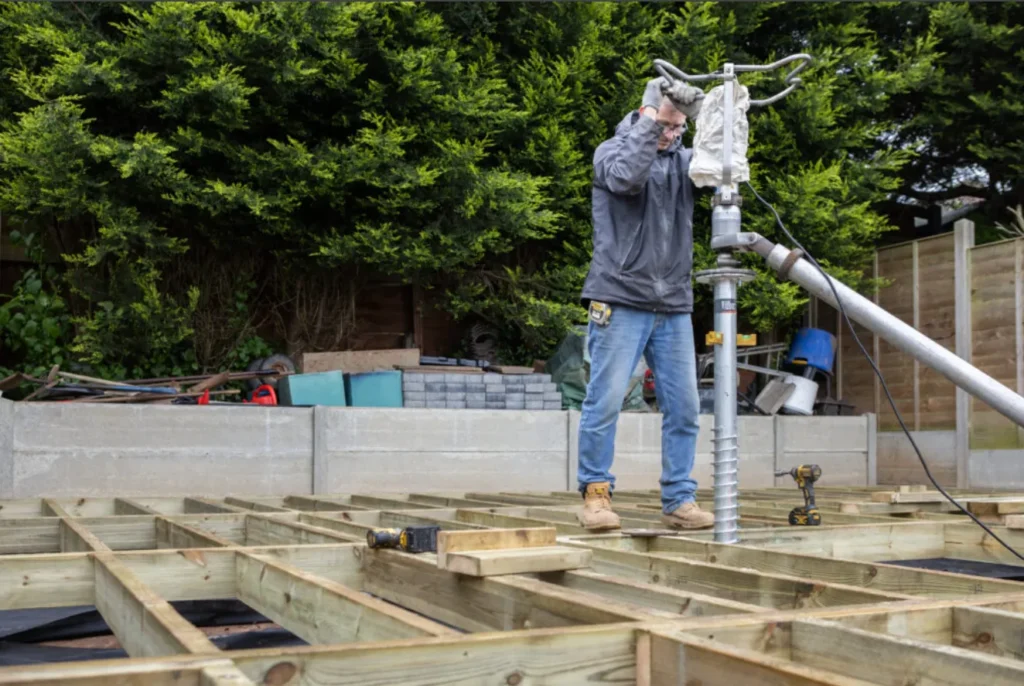Deep foundation techniques applied in support of buildings are screw piles. They are made of ground-screwed steel shafts featuring helical blades. This approach guarantees great load-bearing capability and offers stability. Projects in homes, businesses, and industry all use screw piles. They provide dependability, simplicity of installation, and strength. Many builders choose them because of their capacity to fairly disperse loads.
Why Choose Screw Piles?
In buildings, screw piles offer several benefits. Their efficiency, robustness, and adaptability help them to be rather often employed. The installation goes quickly and calls for little site preparation. Neither curing time nor excavation are necessary. Built just after installation, structures help to expedite building projects.
Among the several soil conditions screw piles work in are clay, sand, silt, and loose soil. They fit soft terrain and regions prone to flooding very well. Since they disrupt the ground and surroundings hardly, they are ecologically beneficial. There is no need for heavy machinery, hence one avoids using too much concrete.
Since they cut labor, tools, and material expenses, they are reasonably affordable. Their installation calls for fewer resources and is quick. Designed from corrosion-resistant steel, screw piles provide great long-lasting strength. They are therefore perfect for temporary buildings since they can also be taken out and recycled.
Applications of Screw Piles
Since screw piles are utilized in many different kinds of projects, they are perfect for all kinds of construction. Common uses for them in homes include house foundations, decks, patios, and fences since they give stability and stop ground movement.
The long-term structural integrity of commercial buildings like offices, warehouses, and retail areas depends on screw piles. Screw piles in large-scale infrastructure projects also help industrial facilities—including manufacturing plants and factories—benefit. Their stabilization of bridges and pedestrian walkways is vital.
They are used in renewable energy to provide solar panel foundations, therefore guaranteeing stability in solar farms. Supporting utility poles, light poles, billboards, and traffic signals are screw piles. They also help shoreline constructions using docks and boardwalks.
Installation Process
Easy and quick screw pile installation ensures robust soil anchoring. Starting with a site evaluation, where engineers review project specifications, load requirements, and soil conditions, the method This evaluation helps one to select the appropriate type and amount of pile. Then hydraulic equipment turns the screw pile into the ground, thanks to the helical blades, therefore enabling perfect penetration.
Driven to the necessary depth for best stability, the pile is Load testing then helps engineers confirm the load-bearing capacity before the ongoing building starts. The foundation is ready and building may start right away as testing is finished.
Factors to Consider When Using Screw Piles
Correct selection and installation of screw piles guarantees strength and durability. The type of soil is therefore quite important since various soil conditions call for varied screw piles designs. Before installation, engineers run tests to ascertain the optimal course of direction. Load needs have to be taken into account since the weight and size of the construction define the depth and size of the pile.
Furthermore, crucial is the composition of the pile; galvanized or covered steel piles stop corrosion and extend their lifetime. Appropriate installation tools should be used; hydraulic machinery guarantees exact and effective placement. Although harsh conditions may call for changes, screw piles may be erected in most weather conditions hence one should also consider the surroundings.
For many different applications, screw piles offer a solid and effective basis. Its favored choice is based on its fast installation, economy, and adaptability. Long-term stability and durability are guaranteed by correct assessment and installation. Selecting screw piles can help builders create a strong and safe basis for any type of construction.
